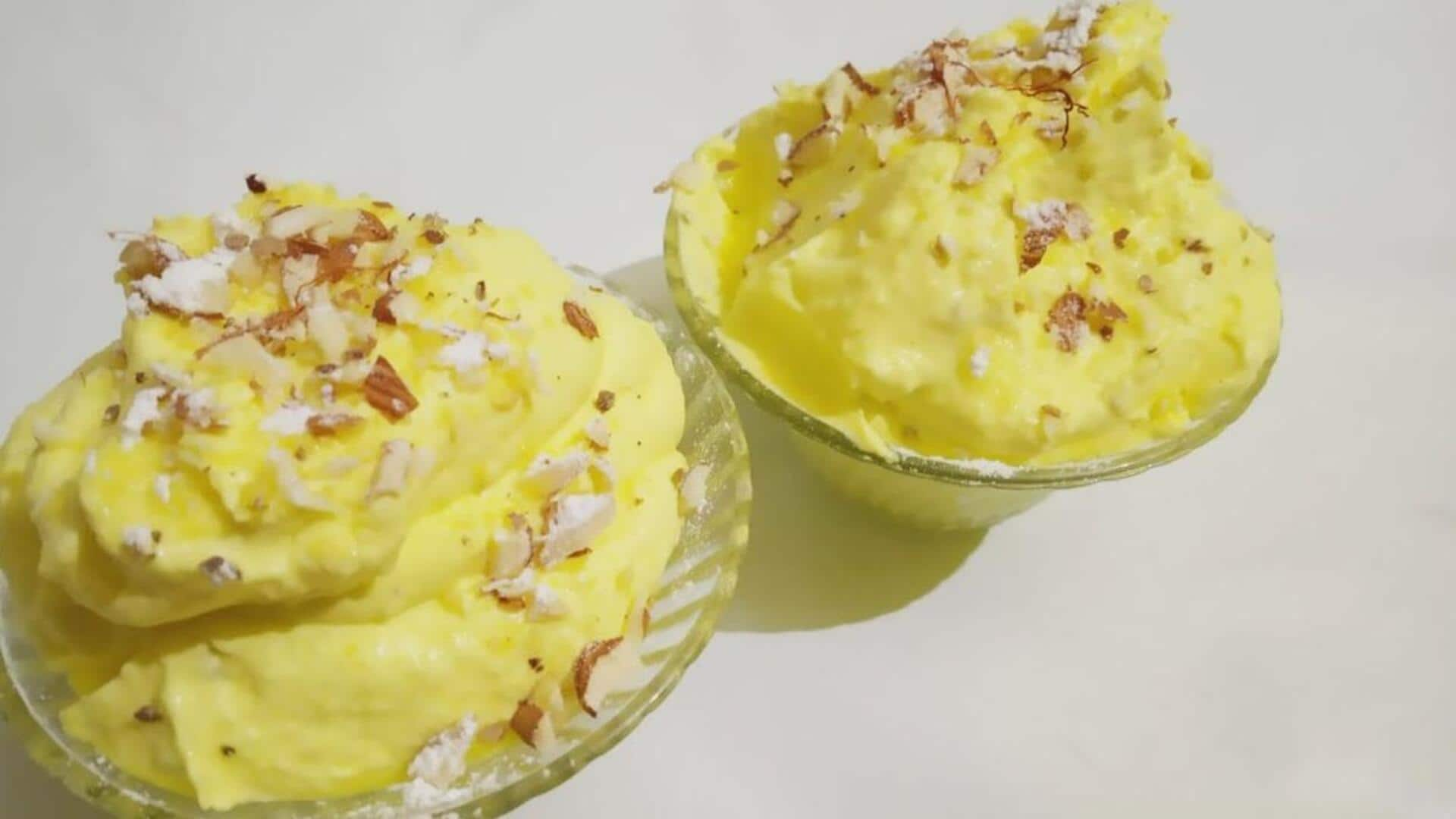
Makkhan malai: A winter delicacy that shouldn't be missed
What's the story
The ethereal makkhan malai isn't just another North Indian winter delicacy—it's a cloud of history you can taste!
Light as a dream and sweet as the first snowfall, this airy treat is a true testament to the genius of Indian culinary craftsmanship.
Spun from the cool mist of the Mughal era, it has twirled its way through time to land on our winter celebration plates.
Roots
Origins in the Mughal kitchen
The origins of Makhan Malai trace back to the royal kitchens of the Mughal Empire.
It was originally crafted for the nobility using cream churned from milk, then left to set in dew overnight.
This process imbued it with its signature lightness and flavor.
Not just a culinary delight, this dessert also reflects the ingenuity of chefs who harnessed the environment itself in the art of gastronomy.
Evolution
A delicacy reimagined
When makhan malai traveled from the royal courts to the streets, local vendors started experimenting with the traditional recipe.
Saffron for color and flavor, cardamom for aroma, and almonds and pistachios for texture became staple additions.
This transformation showcases the profound influence of regional tastes and creativity on this dessert, making it a cherished treat for many.
Festivity
Winter celebrations' star
Makhan malai goes beyond being a simple food item; it's a symbol of winter festivities in North India.
Especially during Diwali and Holi, stalls are overflowing with this cloud-like treat.
The start of its making signals the beginning of the colder season, associating it with comfort and happiness during the freezing winter months.
Technique
Culinary techniques preserved
The conventional way of preparing makhan malai entails hand-churning milk cream and then letting it ferment overnight under the dew.
While contemporary versions may resort to mechanical churners or refrigeration for ease, some artisans remain true to the traditional process.
This guarantees that every batch maintains its genuine flavor and texture, echoing its historical essence.
Present day
Enjoying makhan malai today
Today, relishing makhan malai isn't just about delighting in its flavor; it's about preserving a slice of history.
Though it comes cheap throughout North India during winters at ₹50-₹100 per serving depending on location and garnishing,
every spoonful delivers more than mere sweetness—it's a taste of centuries-old traditions that remain beating hearts in the bustling body of contemporary India.